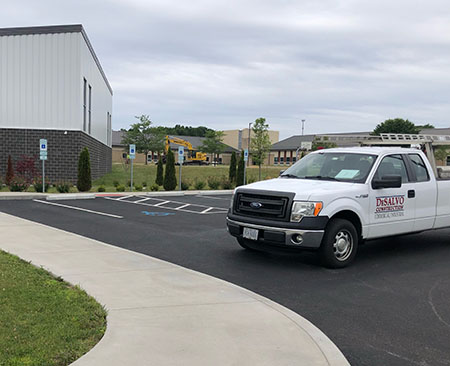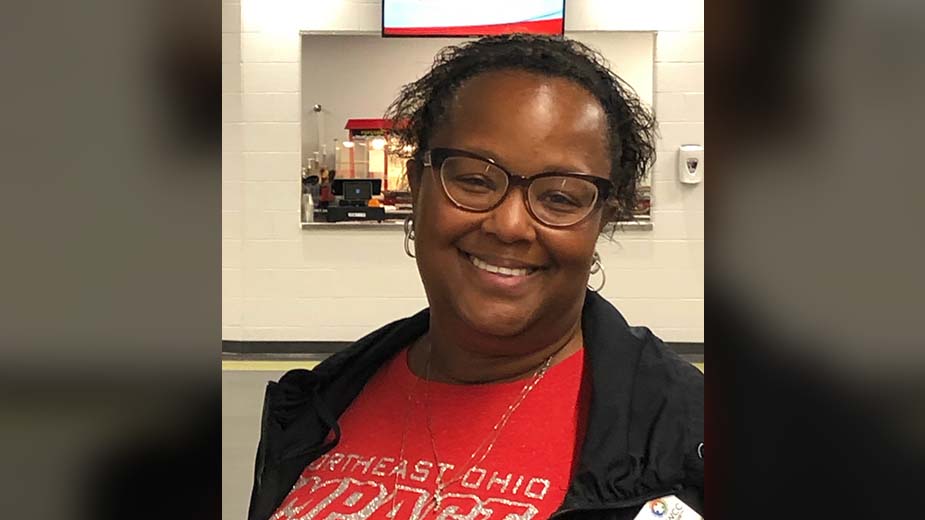CAMPBELL, Ohio – Campbell City Schools and its community partners have taken another giant step toward providing better programming and services for students and families in the region, this time with the addition of the Whole Child Whole Family Service Center.
The school announced another $650,000 has been obtained for the project, part of a multiphase initiative aimed at bringing additional services to the community and the school district. Besides educational opportunities for adults and students, the new center will offer health-related services for children.
Ground is expected to be broken in July for the nearly 10,000-square-foot addition, which will be part of the larger building at 380 Struthers-Coitsville Road.

The ever-expanding Community Literacy Workforce and Cultural Center, a 71,000-square-foot building, sits on the same campus as Campbell City Schools. The entire complex represents a model for how school districts can partner with both public and private entities for the benefit of the students, their parents and other members of the community.
This latest $650,000 in funding is part of nearly $4.46 million state Sen. Michael A. Rulli recently announced was secured for projects in Mahoning County, along with another $1.9 million for projects in Columbiana County. The funds were approved in the most recent capital budget.
“We’re excited that the 134th General Assembly identifies the innovative opportunities being created here,” Campbell Schools Superintendent Matthew Bowen said. “I want to express a sincere gratitude and appreciation for so many of our local and state officials and our partners, who continue to see the importance of this project and what it provides to the local community.”
The latest funding will provide much needed additional laboratory space for students studying STEM programing through the Northeast Ohio Impact Academy, according to the cultural center business manager, Cheryl McArthur. When the program began in 2019, it was initially for 7th and 8th grade students, she said. Now those students will need labs for higher-level classes, such as chemistry and physics.
Bowen touts the Impact Academy as one of only a few dedicated STEM programs in the state of Ohio.
The STEM program also partners with Eastern Gateway Community College, which uses the space for adult training programs when it is not in use by the Impact Academy. The partnership further allows students with the academy an opportunity to take College Credit Plus classes in the STEM curriculum areas of science, technology, engineering and mathematics.
Pediatric Care
McArthur said about 4,000 square feet of the new space will be dedicated to the center’s emerging partnership with Akron Children’s Hospital, which will provide pediatric care and specialized mental health services.
Even before the COVID-19 pandemic, the Centers for Disease Control and Prevention reported children and teens faced mental health challenges. In April 2022, the CDC reported that 37% of U.S. high school students reported mental health challenges.
According to a survey of 4,665 teachers nationwide conducted by AdoptAClassroom.org, 80% of those teachers said they spent more time addressing students’ mental health problems during the 2021-22 school year than before.
“We are very excited to be a part of this project with the Campbell City School District and look forward to opening next year,” said Brian LaPolla, vice president of facilities, planning, construction and public safety at Akron Children’s Hospital.
LaPolla said the hospital design team is working in conjunction with the Campbell City Schools architecture team and project planners as it prepares to simultaneously construct new spaces.
In the medical center will be six primary care exam rooms and additional space for behavioral mental health services, as well as the office space needed for an anticipated staff of 12 people, LaPolla said.
By the second year of operation, he said, the hospital projects about 6,500 annual visits. Some will use the site because it is closer than another Akron Children’s Hospital care center, while others may be new to the health system.
When designing a health center like this new one, LaPolla notes, the team works to build it “through the eyes of a child” with children’s comfort and parental conveniences in mind.
“Having them right here on our campus is going to provide benefits for our students, providing them with easier access and availability to medical services,” McArthur said.
The center demonstrates the whole child framework concept that the Ohio Department of Education touts as important for going beyond the academic needs of students. Such health centers also strive to meet their social-emotional, physical and safety needs.
It is important, Bowen said, that the benefits from the new health center come without increasing the tax burden on the residents of the school district.
Public-Private Partnerships
Because the project will benefit the students of Campbell and the local community as well as those throughout the region, the culture center project has looked for other funding sources. He cites the project as an example of the way a school district can use public-private partnerships and stackable grants to provide resources for the betterment of the community as a whole.
He believes the initiative is becoming a model for future collaborative endeavors, not just in Ohio, but nationwide.
The two earlier phases of the culture center project brought together numerous community partnerships. They include Southwoods Health, The Public Library of Youngstown and Mahoning County, MyPath Mahoning Valley, Eastern Gateway Community College, Stark State College, the Mahoning County Mental Health and Recovery Board, Eastern Gateway Community College, the Northeast Ohio Impact Academy, the Regional Chamber, the Mahoning Valley College Access Program and the United Way of Youngstown and the Mahoning Valley.
One partnership provided space to Southwoods Health, which operates an urgent care clinic inside the culture center.
The Red Devil Bistro is also inside the culture center.
A Stepping Out Program through Mercy Health Foundation of Mahoning Valley brings fitness classes to the center, such as yoga and Zumba offered at no cost to the community.
McArthur said although use of the center declines in the summer months, people still come for various reasons, including use of the indoor track and cardio room to work out while avoiding the heat or the rain. Spaces in the center can be rented for craft shows and other community events, Amateur Athletic Union Junior Olympics volleyball tournaments and as a training site for displaced employees.
The additional spaces and services to come will give people yet another reason to use its services.
“We are excited to increase the existing collaborative and shared service delivery model,” Bowen said.
It not only has a positive effect for families in the district and the region, but also benefits the community partners involved in the initiative, creating a “strip mall concept. The public and private partners within the center benefit from the increase in foot traffic the addition of new partners create.”
A fourth phase, slated to be called the Mahoning Valley Wellness and Rehabilitation Center, remains in the planning stages.
Tentative plans include additional health and wellness services for the community, as well as new training opportunities for students and adults interested in careers in the medical field. The planning phase for that project is set for October.
Pictured at top: Cheryl McArthur is the business manager for the Community Literacy Workforce and Cultural Center of the Campbell City Schools.
